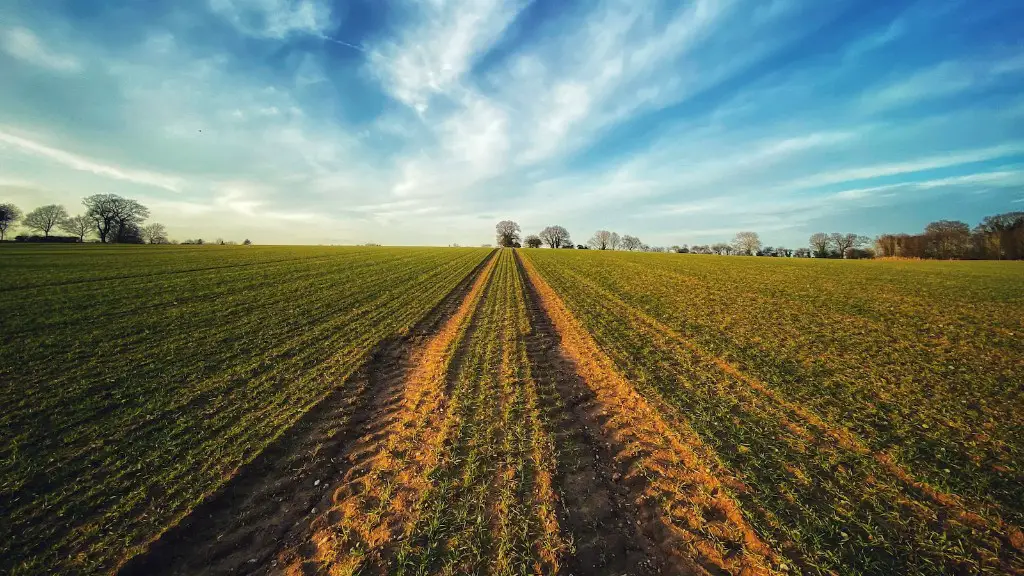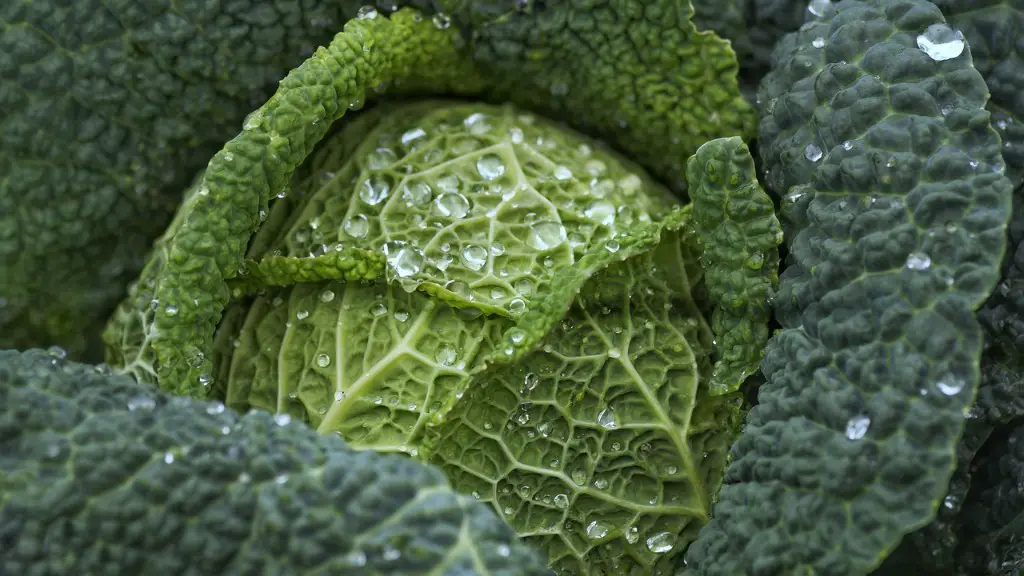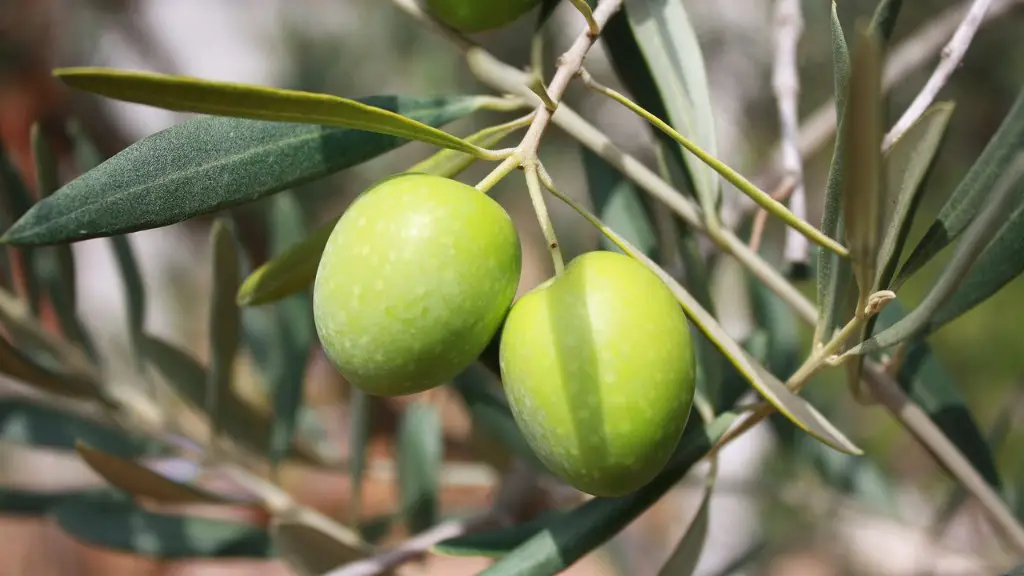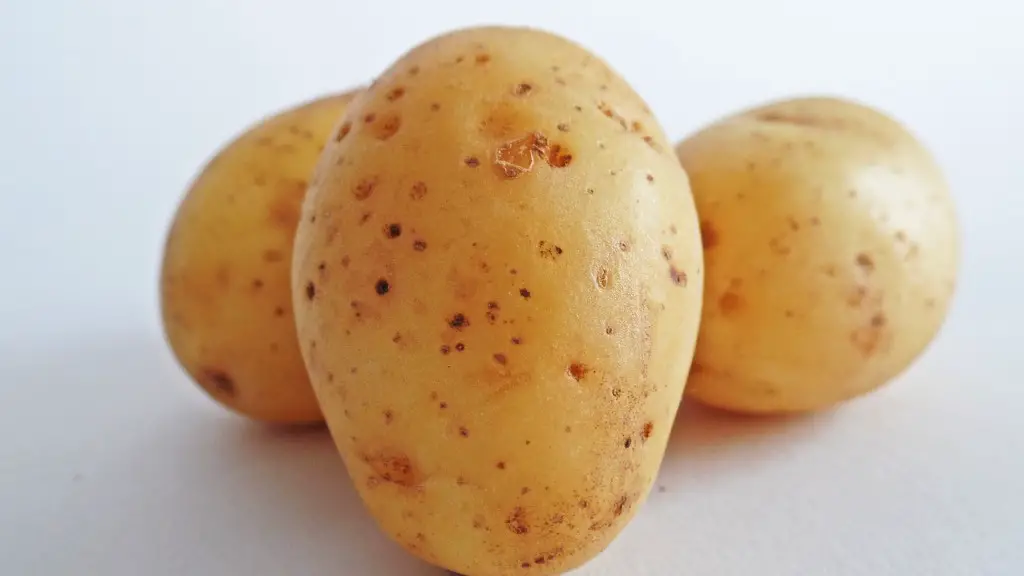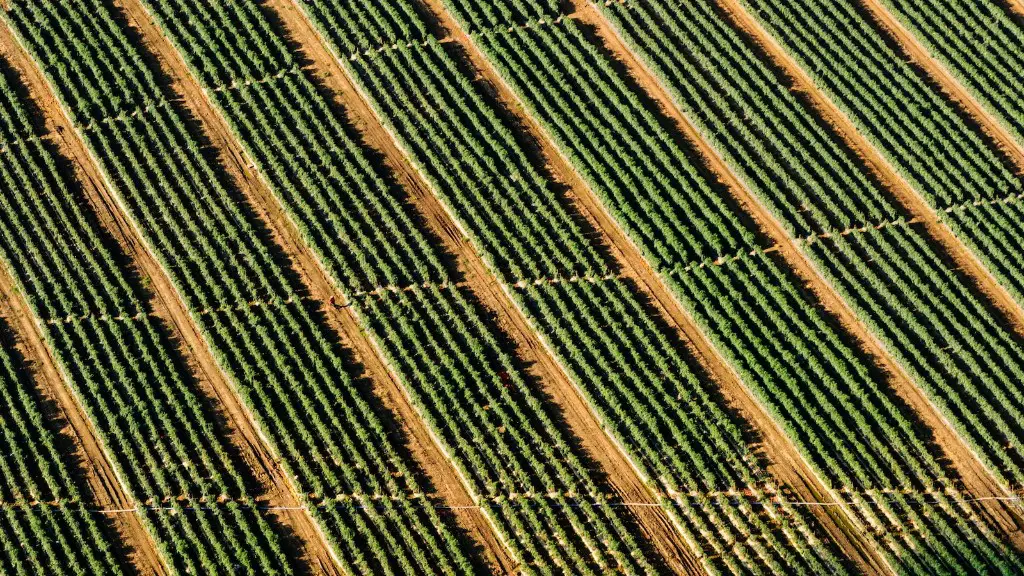The impact of agriculture can be both positive and negative. On the positive side, agriculture provides us with food and many other products that we use in our daily lives. It also creates jobs for people both on the farm and in related industries. On the negative side, agriculture can have a negative impact on the environment, especially if it is not managed properly. The use of pesticides and other chemicals can pollute the air, water, and soil, and the overuse of land can lead to soil erosion and other problems.
The impact of agriculture is far-reaching and extends beyond the farm. It touches every aspect of our daily lives—from the food we eat to the clothes we wear to the energy we use. Farming is the foundation of our economy, providing jobs for millions of Americans and producing the food, fiber and renewable resources that are essential to our way of life. Agriculture also plays a vital role in our nation’s environmental health, helping to preserve our soil and water resources.
What impact does agriculture have?
Agriculture is the backbone of many societies and continues to play a vital role in social and economic development. It supports livelihoods through food production, provides raw materials for a variety of industries, and creates opportunities for trade and economic growth. Agriculture also plays an important role in conserving natural resources and ecosystems.
Agriculture is a major contributor to environmental degradation. The main environmental issues caused by agriculture include climate change, deforestation, biodiversity loss, dead zones, genetic engineering, irrigation problems, pollutants, soil degradation, and waste.
Climate change is caused by the release of greenhouse gases into the atmosphere. Agriculture is responsible for a significant portion of greenhouse gas emissions, including carbon dioxide from combustion of fossil fuels, methane from livestock, and nitrous oxide from fertilizer use.
Deforestation is often caused by the conversion of forest land to cropland or pasture. This results in a loss of habitat for wildlife, and contributes to climate change.
Biodiversity loss occurs when species are lost due to habitat destruction, pollution, or other reasons. This can lead to a loss of ecosystem services, such as pollination and pest control.
Dead zones are areas of the ocean with low oxygen levels, caused by the release of nutrients (such as nitrogen and phosphorus) into the water. These nutrients can come from agricultural activities, such as livestock farming and fertilizer use.
Genetic engineering is the alteration of the genetic code of an organism for the purpose of improving certain traits. This can have negative consequences, such as the creation of new pests and diseases
What are 3 negative effects of agriculture on the environment
Large-scale, conventional farming is not sustainable in the long term. It contributes to climate change, pollutes air and water, and depletes soil fertility. We need to move to more sustainable methods of farming that focus on diversification, conservation, and using renewable resources.
Agriculture has been a vital part of human society for millennia. It provides food, clothing, and shelter and helps people to enjoy a higher quality of life. Today, agriculture is more complex and technologically advanced than ever before, and it plays a vital role in the global economy.
What is the positive impact of agriculture?
While agriculture can have negative impacts on the environment, it can also have positive impacts. For instance, agriculture can trap greenhouse gases within crops and soils, or mitigate flood risks through the adoption of certain farming practices. These positive impacts can help offset the negative impacts of agriculture, and help to protect the environment.
The Agricultural Revolution was a major turning point in human history. It led to the domestication of plants and animals, which allowed for the growth of civilizations. Agriculture allowed for the growth of cities and the rise of civilizations. It also led to the development of new technologies and the spread of new ideas.
What are 5 important of agriculture?
Farming is an important sector of most economies,whether developed or developing. It provides employment for a significant proportion of the workforce and generates income and foreign exchange.
Developing countries are particularly dependent on agriculture as a source of livelihoods for their rural populations. In many cases, agriculture is the main source of export earnings and foreign exchange.
For developed countries, agriculture sector is important for food security. The sector has also been a significant source of environmental benefits, such as carbon sequestration.
agricultural sector has been under pressure in recent years. Several factors, such as population growth, urbanization, climate change, and competition from other sectors, have contributed to this pressure.
As a result, the sector faces a number of challenges, such as declining productivity, soil degradation, water scarcity, and pests and diseases.
Despite the challenges, the sector remains a critical part of the global economy and offers opportunities for growth and development.
More abundant food supplies could support denser populations, and farming tied people to their land. Small settlements grew into towns, and towns grew into cities. Agriculture produced enough food that people became free to pursue interests other than worrying about what they were going to eat that day.
What are 3 impacts from the agricultural revolution
The agricultural revolution was a pivotal moment in human history. It led to advances in technology and a more reliable food supply, but it also had a number of consequences for human society. One of the most important consequences was an increased dependence on the land. This dependence led to fears of scarcity and to inequality between those who had access to land and those who did not. The agricultural revolution also coincided with a decline in nutrition and a rise in infectious diseases contracted from domesticated animals. While the agricultural revolution was a major step forward for humanity, it also had significant consequences that we are still dealing with today.
Climate change, deforestation, landlessness, lack of integration, land fragmentation, land degradation, and urbanization are all major challenges facing the world today. Each of these problems contributes to the others, creating a cycle of decline that is hard to break.
Climate change is causing the temperatures in different parts of the world to change, which in turn is causing the Earth’s weather patterns to change. This is leading to more extreme weather conditions, including more floods, droughts, and storms. These weather changes are then contributing to the deforestation of the planet, as well as the landlessness and lack of integration of people.
The landlessness and lack of integration of people is causing land fragmentation and land degradation. When people are forced to move because of climate change or other reasons, they often do not have the resources to buy or lease new land. This leads to land becoming fragmented, and the quality of the land degrading over time.
Urbanization is another challenge that is both cause and effect of the others. As people move to cities to escape the effects of climate change, deforestation, and landlessness, they are putting even more pressure on the land. This leads to more land degradation and more urbanization.
All of these challenges are
What are pros and cons of agriculture?
Agriculture has been a vital part of human life for thousands of years. It has allowed us to domesticated plants and animals, which has in turn lead to the development of civilizations. However, there are also some drawbacks to agriculture. For instance, it can sometimes lead to conflicts over access to food supplies. Additionally, bad weather can damage crops, which can be catastrophic for a community that relies on them for sustenance.
Many negative health outcomes are associated with agricultural practices and food systems. These include undernutrition, overnutrition, cancer, fertility, and digestive diseases. These problems need to be addressed in order to improve the health of the population.
What would happen without agriculture
There are many unknowns when it comes to estimating the human population of a world without agriculture. The most likely answer is something between 2 million and 20 million, as without agriculture, we would be restricted to a semi-nomadic lifestyle. What is certain is that in such a world, with no domesticated livestock, there would be millions more elephants and hundreds of thousands more lions, tigers and whales.
The top three agricultural products globally are corn, wheat, and rice. Corn is the most produced crop with 11 billion tons, followed by wheat with 7609 million tons, and rice with 7567 million tons. Cow milk is the top agricultural product in 37 countries, while wheat is the top agricultural product in 14 countries.
How does agriculture help the economy?
Agriculture is a key sector in any economy and its importance cannot be understated. As the provider of food, it is a cornerstone of human existence. As a furnisher of industrial raw materials, it is an important contributor to economic activity in other sectors of the economy.
There are many reasons why agriculture is so important. First, agricultural production is a major source of employment. In many economies, the agricultural sector employs a large share of the workforce. Second, agriculture is a major source of export earnings. For many countries, agricultural exports are a vital source of foreign exchange. Third, agriculture plays a pivotal role in food security. It is estimated that agriculture produces enough food to feed the world’s population of 7 billion people.Fourth, agriculture is a major contributor to economic growth and development. Agricultural production growth has been a major driver of economic growth in many countries.
The importance of agriculture to the economy cannot be understated. It is a major driver of economic growth and development and a vital sector for employment and food security.
The social benefits for farm families include achievement and fulfilment through: Seeing the effects on the people who spend time on the farm; Making a difference in the lives of individuals; and Helping typically excluded people to become more included.
On the farm, families are able to see the direct effects of their work on the people who spend time on the farm. This includes providing healthy food for people to consume, fresh air for people to breathe, and a beautiful landscape for people to enjoy. Families also have the opportunity to make a real difference in the lives of individuals by providing employment and training, supporting farmers markets and other direct-to-consumer sales, and advocating for policy change. Lastly, farms provide a place for typically excluded people to become more included. This includes people of all ages, abilities, and backgrounds. Whether it’s teaching people how to garden, working with at-risk youth, or providing a space for refugees to start anew, farms offer a unique opportunity for social inclusion.
What are 3 benefits of agriculture
Agriculture is the cornerstone of human survival. The basic needs for human beings – food, shelter, and clothing – are all dependent on agriculture for their production. Raw materials such as crops for food, silk for cloth, and wood for shelter all come from agriculture.
Without agriculture, human beings would not be able to survive. It is essential for our survival and well-being.
Agriculture is not just a way to provide food for people and animals; it can also help improve the environment. By reducing air pollution and providing a resource-rich habitat for certain wild species, agriculture can make a positive impact on the environment. In addition, agriculture can help reduce soil erosion and help conserve water resources.
Final Words
The impact of agriculture is far-reaching and affects many aspects of our lives. It influences the food we eat, the clothes we wear, the fuel we use, and the chemicals we use. Agriculture also affects the environment, the economy, and our social structure.
The impact of agriculture is far-reaching and affects us all. Agriculture is the main source of food for the world, and it also plays a vital role in the economy. Agriculture provides jobs for millions of people and is a key sector in many countries. The impact of agriculture on the environment is also significant, as it is one of the main sources of greenhouse gas emissions.

